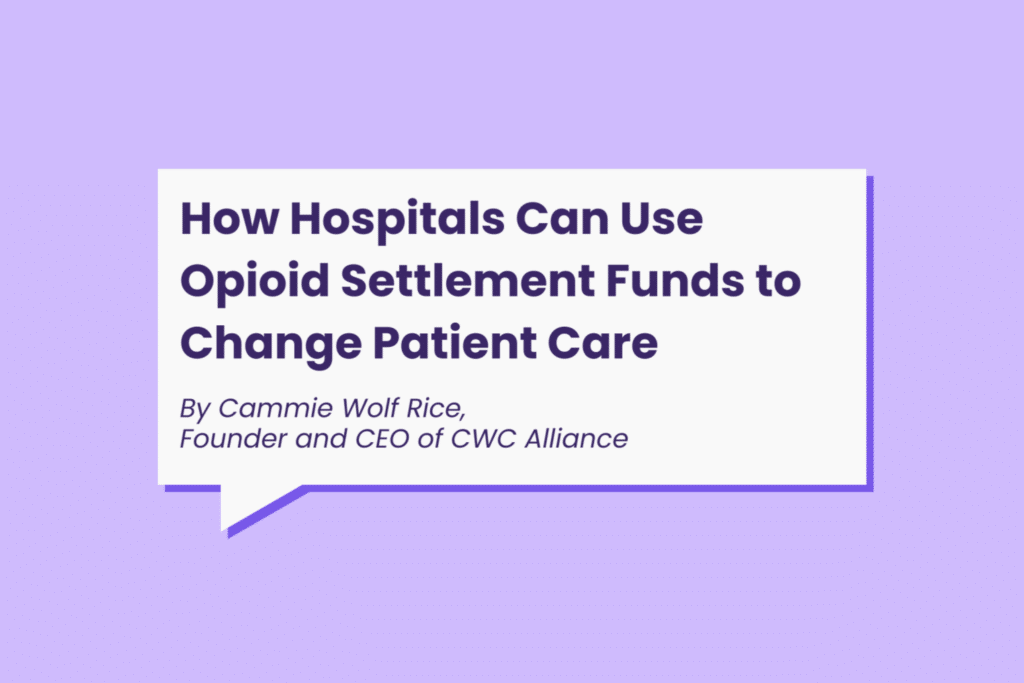Pain is a deeply personal experience. No two cases are the same, and what works for one patient might not work for the next. And yet, despite the complexity of pain management, the medical system often relies on a one-size-fits-all approach, with opioids as the default solution.
This isn’t due to a lack of care. It’s due to a lack of options. In hospitals across the country, healthcare teams are overburdened, resources are stretched thin, and pain management strategies are often siloed between departments. Doctors and nurses want alternatives, but without proper support, opioids remain the quickest and most accessible tool in their arsenal.
I lost my son, Christopher, to substance misuse. He was only 32 years old. His addiction began in a hospital bed, with a prescription that was meant to help him heal. At 12 years old, he was diagnosed with Ulcerative Colitis. After surgery, he was prescribed round-the-clock opioids to manage his pain. What resulted was a 14-year battle with addiction that ended in tragedy.
Sadly, Christopher’s story is not unique. Families across the country are dealing with the ripple effects of opioid addiction.
That’s exactly why we at CWC Alliance created the Life Care Specialist (LCS) position – as a way to support medical staff in addressing the critical gap that failed Christopher.
The LCS steps in at that crucial moment, providing evidence-based pain management strategies that reduce reliance on opioids, educating patients and families about opioid risks and overdose prevention, and offering trauma-informed emotional support. We recognize that there are cases where opioids are necessary, which is why the LCS works alongside doctors and nurses to develop a custom pain management plan that prioritizes safe tapering and alternative therapies whenever possible.
Since its launch in 2019 at Grady Memorial Hospital, the LCS program has expanded to 10 hospitals nationwide and has been recognized by Harvard as a case study in innovative care. The results speak for themselves: a clinical study found that patients who saw an LCS were discharged with 25% less opioid pain medication than those who did not interact with one.
We believe the LCS should be a non-negotiable part of the medical team. The good news? Hospitals don’t have to carry the financial burden alone. We’ve helped hospitals across Georgia and Arkansas successfully secure opioid settlement funding to implement this program. In Arkansas, the Arkansas Opioid Recovery Partnership awarded funding to North Arkansas Regional Medical Center and Ouachita County Medical Center to train and hire two Life Care Specialists.
Through our experience working with hospitals to secure this funding, we’ve learned a few lessons along the way that can help you do the same and kickstart your own opioid prevention and treatment program:
- Do a Readiness Assessment: Before applying for funding, it’s important to determine whether your hospital has the infrastructure and patient volume to support a Life Care Specialist. Not every facility is a fit. Hospitals with fewer than 10 beds may not have the patient load necessary to sustain the role. Consider the needs of your community: How many patients does your hospital serve each year? What are your current pain management and opioid prescribing protocols? Are opioids still the default for managing post-surgical or chronic pain? If so, an LCS could help improve patient outcomes while reducing opioid dependency.
- Identify Funding Opportunities: Many hospitals focus on statewide opioid settlement grants, but funding is also available at the regional, municipal, and county levels. Overlooking these smaller grants means missing out on opportunities that may have fewer applicants and more flexible funding structures. We recommend using the Opioid Settlement Community Grant Tracker, an extensive resource to explore available funding in your area.
- Justify the Need: Hospitals that can demonstrate a clear need for an LCS are more likely to secure funding. Start by gathering local data on opioid prescribing rates, overdose cases, and emergency department visits related to opioid misuse. Consider patient demographics: Does your hospital serve a high percentage of elderly patients? Older adults are frequently prescribed opioids for pain management, making them a prime population that can benefit from an LCS.
- Already Applying for Opioid Settlement Funds? If your hospital is already in the process of applying for opioid settlement funds, there’s no need to start from scratch. More often than not, you can easily integrate the Life Care Specialist into an existing application. Many of these grants focus on treatment and recovery, but prevention and patient-centered pain management are often missing from the equation. The LCS program helps bridge that gap. It gives hospital staff a way to support patients both before and after addiction takes hold.
With opioid settlement funds being distributed across the country, hospitals have a critical opportunity to put those dollars toward solutions that work. By putting these dollars towards initiatives that improve outcomes for our most vulnerable patients, we can continue to address the opioid crisis at its roots.


